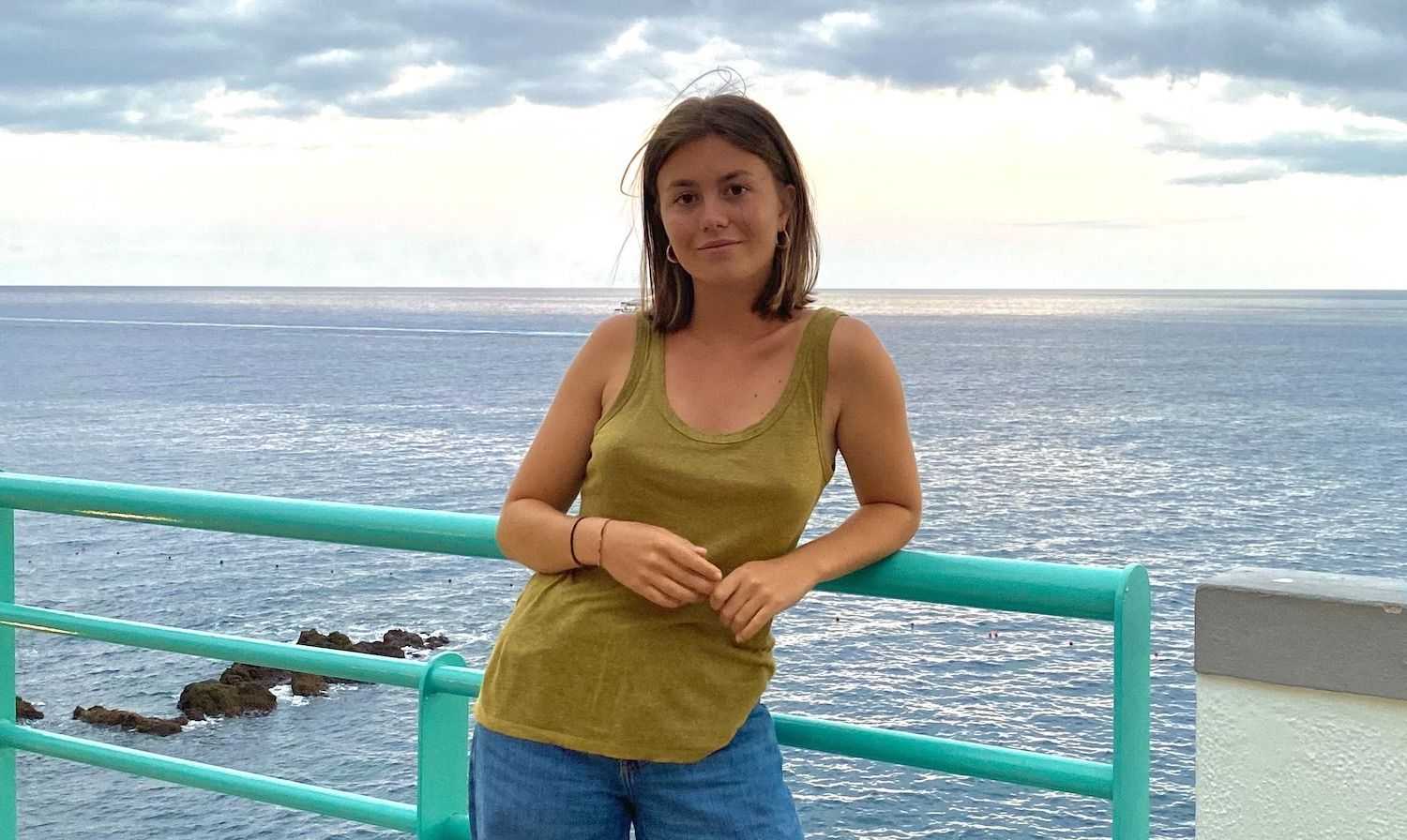Home>Civic Learning Programme: Adele Aims to Make Sport Accessible

15.04.2024
Civic Learning Programme: Adele Aims to Make Sport Accessible
In this series of portraits dedicated to the Civic Learning Programme, four bachelor students from the Sciences Po's Undergraduate College tell us about their experiences out in the field, their commitment, as well as their personal and professional development.
Adèle Moisan, a second-year student on the Nancy campus, co-president of the sports student association and a former equestrian acrobat, has dived into the field of accessibility to sporting activities by working with centres offering para-equestrian lessons or equine mediation, and later on with a disabled sports club. Read her interview.
Who are you and why did you choose to study at Sciences Po?
My name is Adèle, I come from Normandy and I'm in my second year at the Nancy campus, European Union, Franco-German partnership minor. I chose Sciences Po because I had a thirst for knowledge and this university offers a student and academic environment that encourages the exchange of ideas. The reputation of the institution and the possibility of spending a year abroad also played an important role, as did the possibility of applying for a wide range of master's programmes when the time came. More specifically, with regard to my choice of campus, it was the opportunity to follow a course focusing on European Union challenges that appealed to me.
What topic have you chosen for your Civic learning programme and why is it important to you?
I thought I needed to choose a topic that was really personal to give meaning to my Civic Learning Programme. After giving it a lot of thought, I turned to the issue of accessibility to sport. Sport is something that has always been present in my life, without me really realising what a privilege it is. Whether competitive or not, it has contributed greatly to my physical and mental well-being, and its benefits in terms of team spirit, concentration, consistency and self-knowledge have been immense.
However, accessibility to different sporting activities is compromised by a number of factors, including disability and gender. It was important for me to be aware that the benefits I have mentioned are not accessible to everyone in the same way, so that I could then take these biases into account and take action at my own level. It's an approach that I also applied to my community life on Nancy campus, as co-president of the sports student association.
Which organisations did you work for in your 1st and 2nd years of study, and why?
For my first year internship, I wanted to go for an association where I could be useful while remaining in my “comfort zone”. I didn't want to underestimate the impact that the public concerned by the organisation might have on me. It was a relevant choice as I'm not used to or have the necessary skills to supervise disabled people.
As I've done some ten years of equestrian acrobatics and I'm at ease with horses, I concentrated on centres that offered para-equestrian lessons or equine mediation. I got a lot of positive responses to my internship requests, which just goes to show that this predominantly voluntary sector is always looking for volunteers! For my second-year civic work placement (which runs throughout the school year), I'm volunteering with a parasports club that offers activities such as wheelchair basketball, blowpipe and parkour.
Have the realities on the field changed the way you see the topic you chose?
The fairly long duration of the field experiences means that we really have the time to confront our initial prejudices. As far as I'm concerned, the experience was quite difficult and clearly highlighted the extent of the lack of support for voluntary organisations and the undermining of their work, although monumental.
It was rather paradoxical to see the para-athletes training and progressing while not knowing whether the centre would survive until the following year: this highlighted the influence of public policies on the associative fabric, and its members.
What advice would you give to 1st year students when choosing their topic and host organisation?
Choose a community and an issue that you really care about and where you feel you can make a difference. That's where you'll be the most useful, and where the benefits will be twofold: your time will benefit the organisation for which you're volunteering, and your investment in it will benefit you too.
your civic learning programme in a word?
Impactful.
The Civic Learning Programme aims at promoting citizenship by enabling students to fully assume their social and civic responsibilities. It is a fundamental pillar of the Undergraduate College curricula: its validation is indispensable for obtaining the Bachelor's degree. By weaving together the theoretical knowledge they were taught and the empirical data and information acquired during their field experiences, students are invited to build their own personal project.
